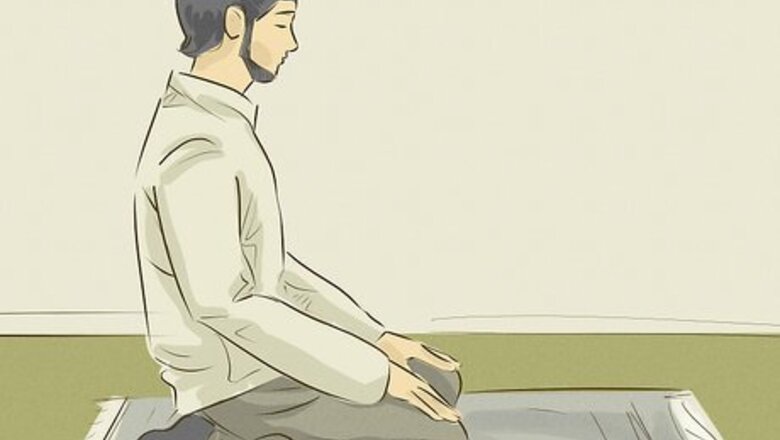
views
Choosing When to Make Dua
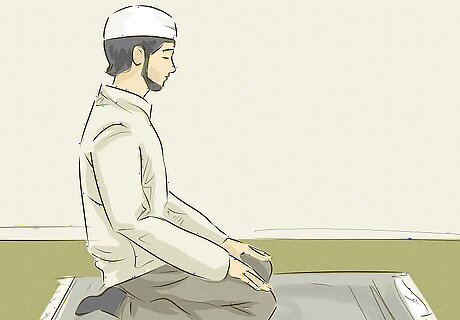
Offer dua to start or finish prayer (salah), or during it. Different traditions within Islam have varying opinions upon the proper or best time to make dua. Some believers, for instance, contend that it is most appropriate to invoke dua during prostration in prayer (sajdah). Others find it appropriate to offer dua at any point during prayer, including opening or closing prayer with it, but either way each of the five daily salah provide a perfect opportunity to make dua. It is always required to perform wudu (ritual washing) and face qibla (toward the Kaaba in Mecca) during salah.
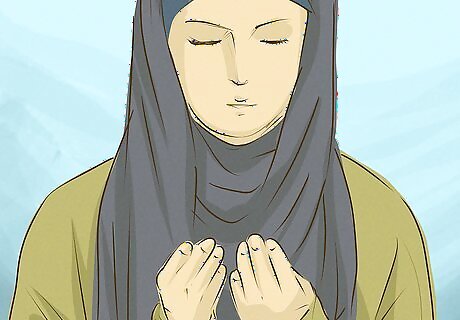
Wait until you are focused and not distracted. No matter when you deem it most appropriate to make dua, it is essential that you put yourself in the proper frame of mind. Eliminate all distractions and maintain a singular focus on offering dua. Remember that you are conversing directly with Allah. Losing focus could be seen as an insult to Allah. It brings the sincerity of your offers and requests into doubt, incurring Allah's displeasure.

Embrace humility, submission, and certainty. Invoking dua is not about making demands, bargaining, or assuming that you know what is best for you. Rather, it is an opportunity to submit yourself to the will of Allah with gratefulness and certainty. Make dua when you have full confidence that you will be heard and responded to. As a believer, you can rest assured that Allah never fails to respond to dua. However, you must accept that the response may differ from what you (pridefully) assume is best for you. Sometimes we may not even realize that Allah has answered our dua. If Allah does not give you something that you ask for, then it is because He is responding in a way that is better for you.

Make dua when you’re happy, sad, or confused. It is very appropriate to offer dua when you are filled with joy and gratitude for the many blessings in your life. It is equally appropriate to do so when you are facing great difficulties and need help and guidance. In any case, always embrace the certainty that you will be heard and that you are never forgotten. So long as you can summon up the requisite focus, humility, submission and hope, then there’s never a wrong time to ask dua.
Phrasing Your Invocation
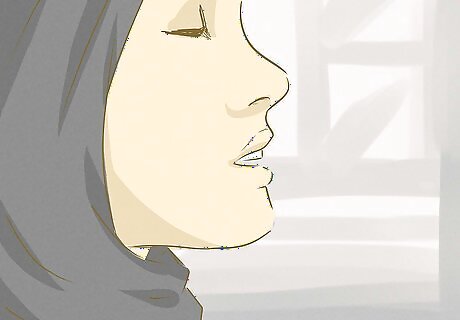
Don’t simply recite duas that you don’t understand. Differences of opinion exist about whether dua should be made only in Arabic, or if it’s fine to use your native language. However, no matter the language you use, make sure you fully comprehend what you’re saying. Otherwise, you’re not having a true conversation with Allah. For instance, some people recite well-known duas in Arabic without having any idea what the words mean. Instead, if you’re using Arabic even though it’s not your first language, study translations so you know what your dua means. Those in favor of making dua in any language, not just Arabic, point out that Allah created all languages and therefore always understands you.

Speak concisely, directly, and with humility. You may be tempted to think that a dua should be full of big, complicated words and flowery, highfalutin phrasing. However, the opposite is true. You should use language that is plain, clear, and free of excess wording or other ostentation. Essentially, you should just get to the point of the matter. Excessive or intentionally rhyming prose can distract you and detract from the clarity of your message. Speak in plain language instead. Repeating the entire dua multiple times—3 is a common recommendation—is, however, a good way to sharpen your focus and demonstrate your persistence. Use a normal speaking tone—don’t whisper as if you are embarrassed to be overheard, and don’t shout as though you are showing off. Many Muslims cry when making dua. This is perfectly normal but don’t manufacture tears for the sake of appearances. Be genuine in your emotion by thinking about the consequences of disobeying Allah.
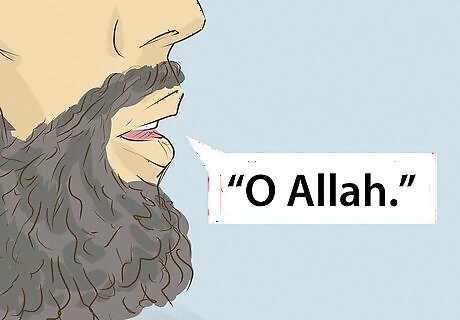
Invoke the name of Allah to start each dua. There are different ways to do this based on the language used and differing traditions within Islam, but most duas start with some form of “O Allah.” It’s important to invoke Allah’s beautiful name at the beginning to make it clear that you are making a direct entreaty. Always start your dua by praising Allah, for example by acknowledging His might, majesty and wisdom, and thanking Him for all that He has provided. It is strictly forbidden to direct a dua toward anyone other than Allah. It is not possible, nor is it necessary, for anyone living or dead to intercede on your behalf.
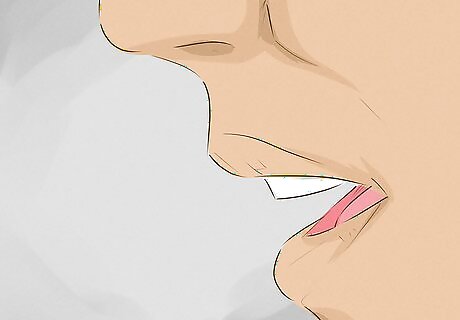
Recite the Prophet’s duas as well as your own. If you're having trouble coming up with the right words to express yourself, it's always appropriate to recite duas spoken by other wise believers, especially the Prophet Muhammad. Duas offered by the Prophet are found in the Quran and the Hadith (the collection of his sayings). The Prophet was given the gift of profound clarity and concision, so these duas are ideally phrased and focused. That said, make sure you can fully understand and embrace the duas you recite, whether they come from the Prophetic tradition or the Quran. Choose duas that are fully appropriate to the feelings and desires you wish to convey. There are many beautiful duas from the Sunnah that can be recited throughout the day, for example on waking and going to sleep, entering or leaving the bathroom, before eating, sneezing, even before marital relations. In addition to the Prophet’s duas, you can search online for duas that are suited to many life circumstances, and which are in English or other languages.
Deciding What to Ask for and Offer

Confess your shortcomings and repent for your sins. Some people mistakenly interpret dua as strictly an opportunity to make requests. However, it’s important to view dua as a conversation with Allah, which makes it a very appropriate time to unburden yourself and seek forgiveness. Acknowledge your sins, however small they may seem. Promise to Allah that you will not repeat them and ask for forgiveness. You might, for instance, ask forgiveness for treating a friend poorly, and then ask for the strength to overcome selfish impulses and treat others with care and respect. Whether you’re confessing or requesting, use concise, direct language, and always remain focused, humble, faithful and fearful.

Ask directly for the blessings you desire to receive. It’s great to make dua requests for general blessings like health or wisdom. That said, if you have a specific blessing in mind, spell it out plainly and ask for it. For example, you might say “O Allah, help me to perform well on the exam tomorrow that I have prepared for.” It is accepted among believers that all legitimate dua requests are answered by Allah, and that the answer will always be for the best, but that it may not be the answer you expected.
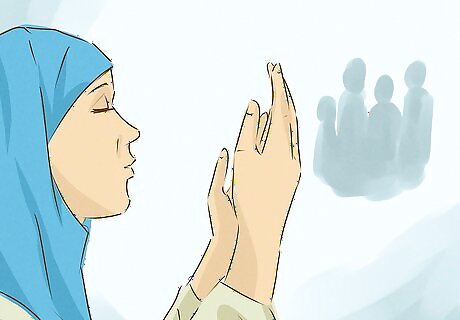
Ask for blessings upon others as well. You should always feel free to make dua requests for the health, welfare, and right-thinking of loved ones, friends, the faithful at large, and even your enemies. Making requests for the benefit of others displays humility and surrender to the will of Allah. You may find that when you request blessings for others, those same blessings will be showered upon you as well. For instance, if you regularly invoke dua for the benefit of a friend in ill health, you may find that both of you become blessed with improved health.
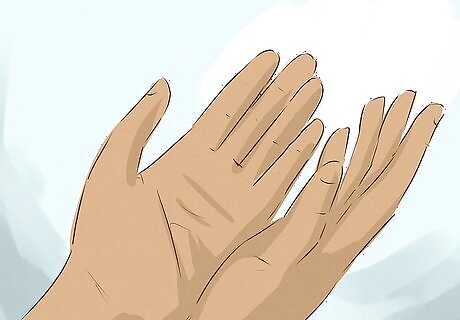
Do not make negative requests towards others or yourself. It is never appropriate to use dua to request that harm or misfortune befall others. For example, don’t request that your incompetent boss be fired, but rather ask that they be blessed with improved abilities. Likewise, don’t make negative requests directed toward yourself. For instance, do not ask for death if you are suffering, but instead ask for healing or for the strength to surrender yourself to Allah’s will and bear your burden. Asking Allah for redemption from Hellfire (Jahannam) should be a regular part of every Muslim's daily duas.




















Comments
0 comment